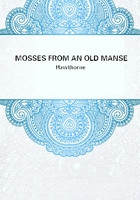
第79章 THE ARTIST OF THE BEAUTIFUL(9)
"But is it alive?" exclaimed she again; and the finger on which the gorgeous mystery had alighted was so tremulous that the butterfly was forced to balance himself with his wings. "Tell me if it be alive, or whether you created it.""Wherefore ask who created it, so it be beautiful?" replied Owen Warland. "Alive? Yes, Annie; it may well be said to possess life, for it has absorbed my own being into itself; and in the secret of that butterfly, and in its beauty,--which is not merely outward, but deep as its whole system,--is represented the intellect, the imagination, the sensibility, the soul of an Artist of the Beautiful! Yes; I created it. But"--and here his countenance somewhat changed--"this butterfly is not now to me what it was when I beheld it afar off in the daydreams of my youth.""Be it what it may, it is a pretty plaything," said the blacksmith, grinning with childlike delight. "I wonder whether it would condescend to alight on such a great clumsy finger as mine?
Hold it hither, Annie."
By the artist's direction, Annie touched her finger's tip to that of her husband; and, after a momentary delay, the butterfly fluttered from one to the other. It preluded a second flight by a similar, yet not precisely the same, waving of wings as in the first experiment; then, ascending from the blacksmith's stalwart finger, it rose in a gradually enlarging curve to the ceiling, made one wide sweep around the room, and returned with an undulating movement to the point whence it had started.
"Well, that does beat all nature!" cried Robert Danforth, bestowing the heartiest praise that he could find expression for;and, indeed, had he paused there, a man of finer words and nicer perception could not easily have said more. "That goes beyond me, I confess. But what then? There is more real use in one downright blow of my sledge hammer than in the whole five years' labor that our friend Owen has wasted on this butterfly."Here the child clapped his hands and made a great babble of indistinct utterance, apparently demanding that the butterfly should be given him for a plaything.
Owen Warland, meanwhile, glanced sidelong at Annie, to discover whether she sympathized in her husband's estimate of the comparative value of the beautiful and the practical. There was, amid all her kindness towards himself, amid all the wonder and admiration with which she contemplated the marvellous work of his hands and incarnation of his idea, a secret scorn--too secret, perhaps, for her own consciousness, and perceptible only to such intuitive discernment as that of the artist. But Owen, in the latter stages of his pursuit, had risen out of the region in which such a discovery might have been torture. He knew that the world, and Annie as the representative of the world, whatever praise might be bestowed, could never say the fitting word nor feel the fitting sentiment which should be the perfect recompense of an artist who, symbolizing a lofty moral by a material trifle,--converting what was earthly to spiritual gold,--had won the beautiful into his handiwork. Not at this latest moment was he to learn that the reward of all high performance must be sought within itself, or sought in vain. There was, however, a view of the matter which Annie and her husband, and even Peter Hovenden, might fully have understood, and which would have satisfied them that the toil of years had here been worthily bestowed. Owen Warland might have told them that this butterfly, this plaything, this bridal gift of a poor watchmaker to a blacksmith's wife, was, in truth, a gem of art that a monarch would have purchased with honors and abundant wealth, and have treasured it among the jewels of his kingdom as the most unique and wondrous of them all. But the artist smiled and kept the secret to himself .